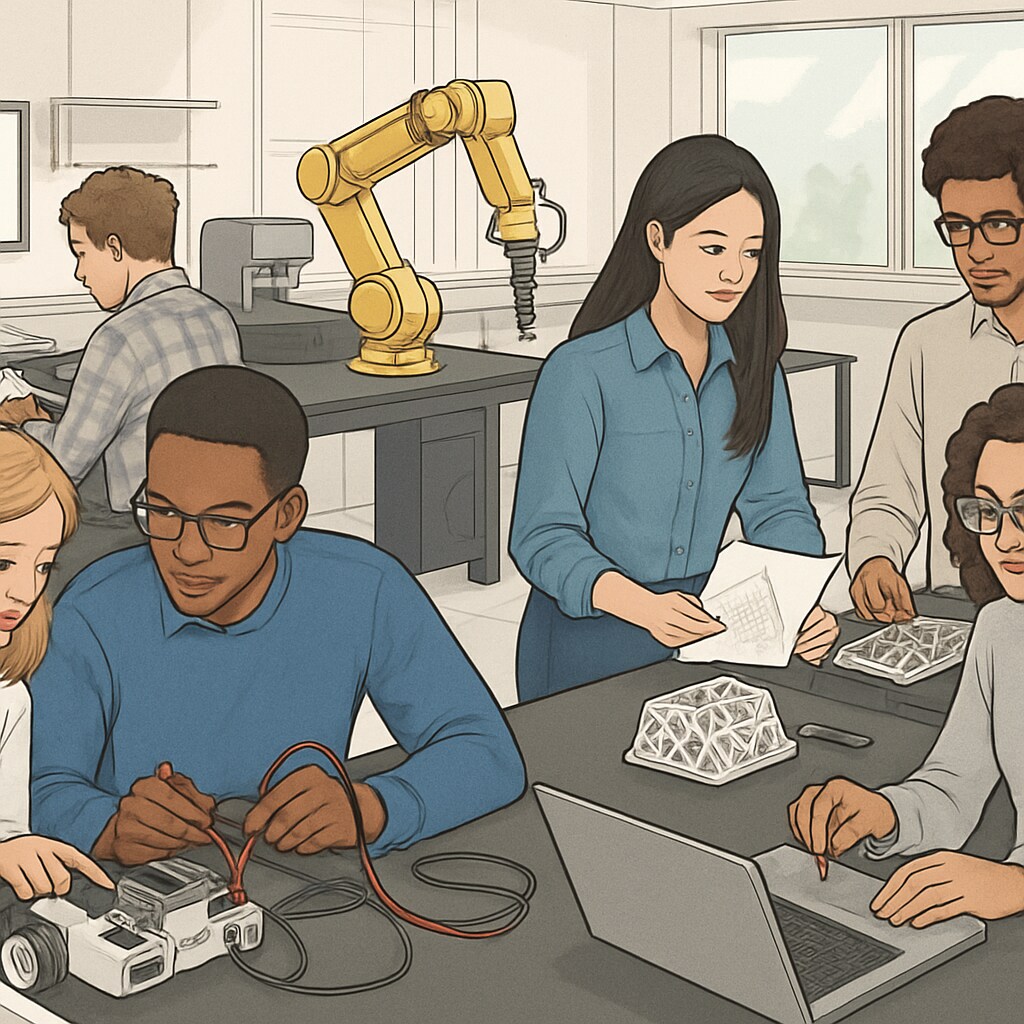The relationship between design engineering, master’s degree options, and career development is becoming more crucial as industries demand more specialized skills. Early education, particularly during the K12 years, plays a pivotal role in preparing students for this career path. By instilling engineering thinking and exposing students to career planning frameworks early, educators can help young learners make informed decisions when choosing between advanced degrees like MEng (Master of Engineering) and MSc (Master of Science).
How K12 Education Shapes Engineering Aspirations
Early education lays the foundation for critical thinking, problem-solving, and creativity—skills essential to design engineering. By introducing concepts such as spatial reasoning, project-based learning, and STEM (Science, Technology, Engineering, Mathematics) programs, K12 educators can spark interest in engineering disciplines. For example, hands-on activities like designing simple structures or coding basic algorithms encourage students to explore engineering as a potential career path.
Moreover, integrating career guidance into the K12 curriculum can help students understand the differences between engineering degrees. Students who are aware of the practical applications of MEng versus MSc degrees will be better equipped to pursue pathways that align with their strengths and career goals.
- MEng (Master of Engineering): Typically focuses on practical, industry-oriented skills, preparing students for engineering roles directly.
- MSc (Master of Science): Often emphasizes research and theoretical knowledge, ideal for academic or specialized technical positions.

Design Engineering Degree Pathways: Choosing Between MEng and MSc
When students reach higher education, they often face a critical choice between MEng and MSc programs. While both degrees offer unique advantages, understanding their distinct focus areas can influence career trajectories. For instance:
- MEng graduates: Frequently enter industries where practical engineering solutions are needed, such as automotive, aerospace, or manufacturing.
- MSc graduates: May pursue careers in research, academia, or specialized fields like nanotechnology or computational engineering.
K12 educators can facilitate this decision-making process by encouraging students to explore their interests early on. Offering opportunities for internships, mentorships, and collaborative projects helps students gain real-world insights into different engineering roles. As a result, they are more likely to choose the degree that aligns with their long-term career aspirations.

Building Career Competitiveness Through Early Planning
A solid foundation in K12 education doesn’t just prepare students academically—it also enhances their professional competitiveness. For example, students who engage in extracurricular STEM programs or participate in engineering competitions develop critical communication and teamwork skills. These attributes are highly valued by employers and can differentiate candidates in competitive job markets.
In addition, early exposure to engineering tools and software, such as CAD (Computer-Aided Design) or MATLAB, equips students with technical expertise that is often sought by hiring managers. K12 educators can partner with local industries to provide students with hands-on experience, bridging the gap between academic learning and professional application.
For more information on engineering education pathways, you can explore resources like Engineering Education on Wikipedia or Engineering Overview on Britannica.
The Role of Parents and Educators in Career Guidance
While schools play a significant role, parents and mentors also contribute to shaping students’ career paths. Encouraging curiosity, fostering resilience, and providing guidance on academic choices are critical during K12 years. Parents can support their children by discussing real-world applications of engineering and helping them identify their strengths.
Educators, on the other hand, can create tailored programs that address diverse student interests. For example, offering elective courses in robotics, environmental engineering, or software development allows students to explore niche areas in the field. These efforts collectively prepare students to make confident decisions when choosing between MEng and MSc degrees.
Conclusion: The connection between design engineering, master’s degree options, and career development begins long before college. By leveraging K12 education to cultivate engineering thinking, career awareness, and technical skills, educators and parents can empower students to navigate degree choices effectively. Whether pursuing an MEng for industry readiness or an MSc for specialized research, early preparation ensures future engineers are equipped for success.


